A Reverse Mortgage: What Is It? A Clear Guide to Knowing the Fundamentals. Imagine residing in a home that you have known for a long time. It is more than simply a structure; it is the repository of your comfort, memories, and sense of security. Imagine being able to earn some additional cash from that house without having to sell it or move out. That seems useful, doesn’t it? That is the fundamental concept of a reverse mortgage. However, what is it and how does it operate?

The Basics: What Is a Reverse Mortgage?
A unique kind of loan is a reverse mortgage. It is intended for homeowners who are at least 62 years old. The bank pays you rather than you paying the bank (as with a standard mortgage). You read correctly—they compensate you! The caveat is that the money they provide you is based on the worth of your house, and you will have to pay it back later when specific circumstances arise.
Notes:
-
- You have to be sixty-two years of age or older.
- Your home must be yours, or you must have very little left over to pay for it.
- Your home’s worth determines how much money you receive.
- You are not required to repay it immediately.
How Does It Work?
Let’s provide an illustration. Let’s say you own a $300,000 home and you are 70 years old. You have a lot of “equity” in your house since you have paid off the majority of your conventional mortgage. (The fancy name for how much of the house you actually own is equity.) Some of that equity can be borrowed as cash through a reverse mortgage.
You have a choice on how to get the money:
-
- As a large lump payment all at once.
- Money each month to provide you with a reliable income.
- A credit line that you can draw from as needed.
- Or perhaps a mix of these choices.
The finest aspect? The money does not have to be returned immediately. Rather, the loan is paid back when:
-
- The house is sold by you.
- You relocate permanently, such as to a nursing home.
- When you die, the repayment is handled by your heirs.
Why Do People Get a Reverse Mortgage?
One may decide on a reverse mortgage for a variety of reasons. A few typical ones are as follows:
-
- Other Funds for Retirement: Many elderly people discover that they cannot pay for what they need with their retirement funds. Extra money from a reverse mortgage might be used to cover expenses for pleasurable things like vacations or even necessities like food and medical bills.
- Keep Yourself at Home: You may continue living in the home you love with a reverse mortgage. As long as you like, you can continue to live there without having to sell it to raise money.
- No Payments Every Month: You are exempt from making monthly loan payments with a reverse mortgage, unlike with a conventional mortgage or other loans. This can significantly reduce stress in life.
- Flexibility: The funds are available for practically anything. Others use it to assist family members or for large expenditures, while others use it for everyday needs.
Are There Drawbacks?
Reverse mortgages are not always the best choice, but they may be excellent for certain people. The following are some points to remember:
-
- The Growth of Your Loan Balance: Remember that the bank is using the worth of your house to provide you with funds. They are not, however, doing it for nothing. Your loan debt continues to increase over time as interest is applied.
- Diminished Inheritance: A reverse mortgage may complicate your wishes if you wish to pass your home (or its value) to your children or other heirs. This is because the loan must be paid back once you vacate the property. The residence is often sold to pay off the loan.
- There are still obligations for you: You still have to pay for items like homeowner’s insurance, property taxes, and maintaining the house even though you aren’t paying loan payments. Failure to do so may result in the debt becoming payable.
- Fees and Expenses: Costs associated with reverse mortgages include closing costs, insurance premiums, and other up-front expenditures. Be sure to know what you’re paying for because these might add up.
Who Can Get a Reverse Mortgage?
In order to obtain a reverse mortgage, you must fulfill these prerequisites:
-
- Age requirement: You must be at least sixty-two years old, as must your spouse if you are both borrowers.
- Homeownership: The reverse mortgage must be used to pay down a small mortgage amount or to purchase the house entirely.
- Primary Residence: The home must be your primary residence, meaning you spend the most of your time there.
- Financial Stability: You need to demonstrate your capacity to cover maintenance expenses, insurance premiums, and property taxes.
Three primary categories of reverse mortgages exist:
-
- Home Equity Conversion Mortgage (HECM)
The federal government supports the most prevalent kind.
With restrictions on the maximum amount you may borrow, it is controlled to safeguard borrowers.
-
- Proprietary Reverse Mortgage
These are provided by private businesses rather than the government.
Particularly if your house is highly valued, they could let you take out a larger loan.
-
- Single-Purpose Reverse Mortgage
Nonprofit groups or certain state and municipal governments provide these.
The funds are limited to certain uses, such as paying property taxes or making repairs to the house.
How Is The Loan Amount Decided
A reverse mortgage’s maximum payout is determined by a number of factors:
-
- Your Age: Your borrowing capacity increases with age.
- Home Value: You can obtain more if your home is worth more.
- Interest Rates: You may borrow more money when interest rates are lower.
- Loan Limits: Regardless of the value of your house, there is a maximum amount that HECMs can borrow.
When the loan is due, what happens?
The loan for the reverse mortgage is payable when:
-
- The house is sold by you.
-
- You permanently leave the residence.
-
- You pass away.
The loan, together with interest and fees, must then be paid back. Usually, the loan is paid off by selling the residence. You or your heirs will get any remaining funds when the debt is paid off.
Your heirs can use other money to repay the debt if they choose to keep the residence.
Is a Reverse Mortgage Right for You?
Not everyone should take out a reverse mortgage. It’s a major choice that is influenced by your requirements, aspirations, and financial status. Consider the following queries:
-
- Are you in need of more funds to pay for expenses?
-
- Are you planning to remain in your house for the long haul?
-
- Do you have any objections to leaving a smaller inheritance?
-
- Are you able to pay your property taxes, insurance, and upkeep?
Speaking with a housing counselor or financial adviser before making a choice is always a smart idea. They can assist you in weighing the benefits and drawbacks of a reverse mortgage and determining if it’s the right option for you.
Conclusions
For elderly people who need more cash but yet wish to remain in their homes, a reverse mortgage may be a useful tool. However, there isn’t a single, universal remedy. You can choose wisely and suitably if you know how it operates, how much it will cost, and what it will entail for your future.
Recall that one of your most valuable possessions is your house. Reverse mortgages allow you to access its worth, but it’s crucial to use them responsibly. Ask questions, take your time, and make sure the decision you make makes you feel good.









